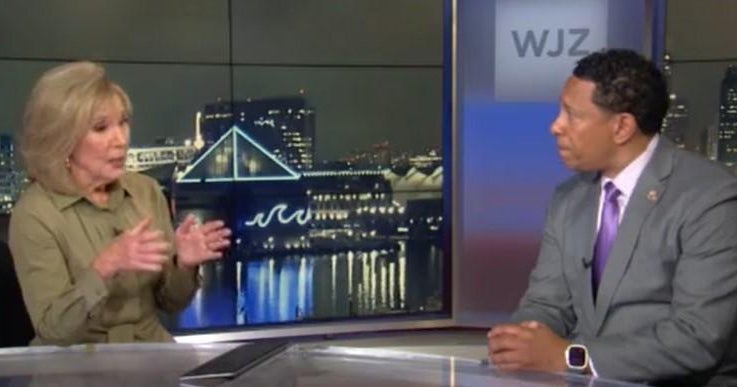How vulnerable are America's bridges in the wake of the Key Bridge collapse?
BALTIMORE -- Thousands of people will travel over the Chesapeake Bay Bridge during this long holiday weekend, raising questions about how vulnerable bridges are after the disastrous Key Bridge collapse in Baltimore.
The Dali cargo ship, weighing more than 100,000 tons, passed under the Bay Bridge last week on its way out of Baltimore.
While the Dali is now gone, the disaster it caused left many questions.
Among them is how to protect vulnerable, older bridges from ever-larger ships.
"It's not the bridge that's getting larger. It's not the waterway that's getting larger. It is the vessels that are getting larger—and not just width but height with containers," said National Transportation Safety Board Chair Jennifer Homendy at a recent Congressional hearing to discuss the Key Bridge collapse. "In this situation, you have a bridge that began operations in 1977, and if it was built today, it would be built differently."
Fracture critical bridges
The Bay Bridge, which like the Key Bridge, is fracture critical. That means if one key structural element fails, the whole bridge will fall.
The westbound span opened 51 years ago last week before tragedies like Tampa's deadly Sunshine Skyway Bridge collapse led to safer construction standards.
"They would either harden the piers so they could take an impact or put a fender, a system of substantial configuration, to deflect that vessel back into the navigable channel," Andrew Herrmann, a retired bridge engineer, told CBS News.
Most bridges are unprotected
A federal database reveals of the more than 4,000 bridges that allow ships to go underneath them, only 36% have functional pier protection.
Just north of Maryland, the Delaware Memorial Bridge, a critical link of Interstate 95, is being retrofitted with a protection system that could withstand an impact from a ship even heavier than the Dali.
"If a ship would happen to lose control or lose steering or whatever and veer towards one of our tower structures, these new dolphin cells will protect our tower structures," Jim Salmon with the Delaware River Bay Authority recently told CBS News. "It's what I would call our insurance policy."
That insurance policy costs $95 million—too expensive for many states, despite the risk of doing nothing.
Johns Hopkins studying vulnerabilities
Researchers at Johns Hopkins University hope to open the eyes of lawmakers and have launched the first comprehensive study into the vulnerability of bridges nationwide since the Key Bridge disaster.
"What are the chances that these vessels are going to go off course that they're going to potentially collide with a bridge? What is the real risk to the major bridges across the country?" asked Johns Hopkins associate professor Michael Shields, who is helping lead the investigation fueled by a rapid response grant from the National Science Foundation.
"We have a team of seven students and three investigators who will be pouring over global shipping data that looks at the frequency of vessel traffic under American bridges, so we're specifically looking at major American ports—East Coast, West Coast, Gulf of Mexico—and looking at the major bridges, the large bridges that these huge vessels are traveling underneath," Shields said.
The next Key Bridge will likely have a longer uninterrupted span across the water with fewer pier supports that could be vulnerable to a ship strike. It will take more than four years to complete.
Funding for a new, safer Key Bridge
Maryland Congressman Kweisi Mfume told WJZ Investigator Mike Hellgren there will likely be a vote in Congress on funding after Labor Day.
The federal government will cover 90% of the almost $2 billion cost.
Maryland's delegation is pressing Congress to cover 100% of the needed rebuilding funds.
"What we're doing in advance is making sure the votes are there. You've got to know how to count votes if you can't do anything else because the tragedy would be for this to come in on the floor and fail," Mfume said.








